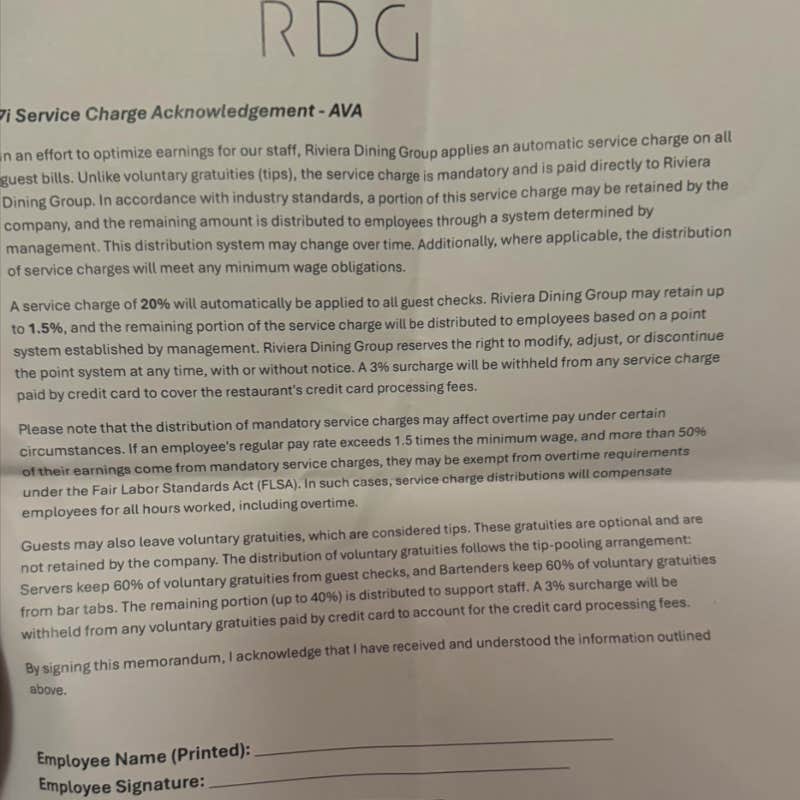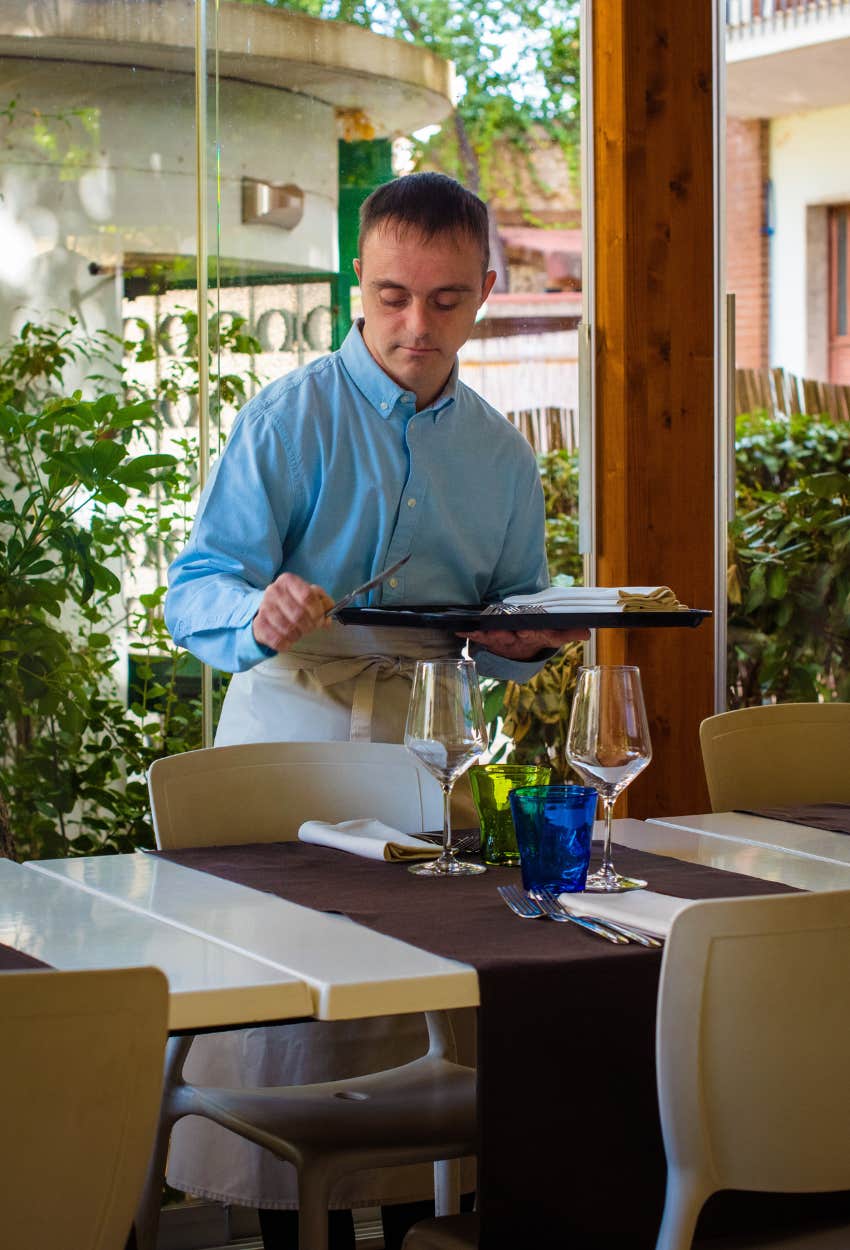Restaurant Adopts Mandatory 20% Service Charge That Doesn’t Go Directly To Employees
So, who is getting the money then?
 Jose Calsina | Shutterstock
Jose Calsina | Shutterstock A Florida restaurant has elicited criticism after announcing its new service charge policy that would affect customers coming to dine with them but wouldn't be beneficial to their employees.
Photos of AVA MediterrAegean's notice to customers have gone viral online after the Orlando-based restaurant claimed that their employees would not be seeing any of the money earned from this new mandate.
The Michelin-rated restaurant adopted a mandatory 20% service charge that doesn't go directly to their employees.
"In an effort to optimize earnings for our staff, Riviera Dining Group applies an automatic service charge on all guest bills," the restaurant's notice to its employees stated. "Unlike voluntary gratuities (tips), the service charge is mandatory and is paid directly to Riviera Dining Group. In accordance with industry standards, a portion of this service charge may be retained by the company, and the remaining amount is distributed to employees through a system determined by management."
The restaurant claimed that the money earned through this service charge could be distributed over time. The 20% charge is to be applied to every bill with no exceptions, and the company has the power to retain at least 1.5% while employees earn money through a point system, again determined by management.
It's important to note that AVA representatives assert that the 1.5% is solely used for healthcare, PTO, and other benefits for restaurant staff and not for company gain.
 Reddit
Reddit
The restaurant group insisted that customers would still be able to leave 'voluntary tips.'
"Riviera Dining Group reserves the right to modify, adjust, or discontinue the point system at any time, with or without notice," the announcement continued. "A 3% surcharge will be withheld from any service charge paid by credit card to cover the restaurant's credit card processing fee."
Of course, AVA MediterrAegean is a Michelin-starred restaurant, and its success is a factor in why the public has been so critical of the policy change.
Customers feel as though they are expected to tip, but on top of that, they're going to have to shell out money for a service charge that isn't clearly defined.
Diners have been consistently pushing back against restaurants adding unnecessary surcharges to their bills.
In 2023, 5% of restaurant owners added surcharges, according to the National Restaurant Association’s restaurant business conditions survey. Similarly, Square, a point-of-sale system for merchants, including restaurants, found that 3.7% of food and drink transactions had service charges tagged onto them in the last quarter of 2024.
It’s already about twice as popular as it was in 2022. Three years ago, only about 1% of restaurants were adding service or labor charges to bills, according to Square’s data.
 Stefano Oppo | Canva Pro
Stefano Oppo | Canva Pro
Unlike tips, service charges are an add-on fee and are usually a percentage or fixed amount that helps restaurants cover their operating costs. Typically, in restaurants, service charges are used to pay back-of-house staff, like washers and cooks. Other times, it can be used to cover employees' healthcare.
However, in some instances, restaurants like the Orlando-based AVA MediterrAegean use it as a way to just bring in more revenue for the restaurant itself and diners seem to be fed up. "Surcharges rub people the wrong way," Ted Rossman, senior industry analyst at Bankrate, told CNBC. He pointed out that it's seen as "a hidden tax that pushes more of the cost burden on customers."
"On the face of it, people may believe in these causes, but they don’t like the line item," Rossman said. "People want to pay one price."
Nia Tipton is a staff writer with a bachelor’s degree in creative writing and journalism who covers news and lifestyle topics that focus on psychology, relationships, and the human experience.
